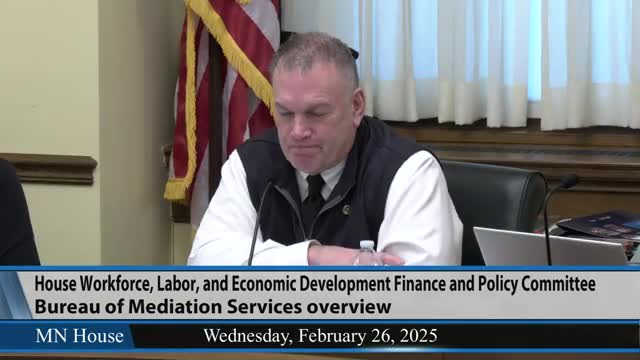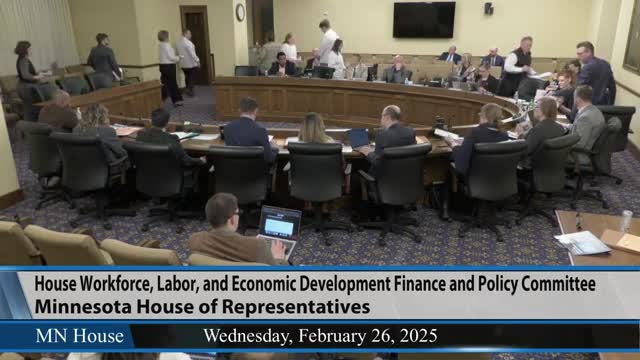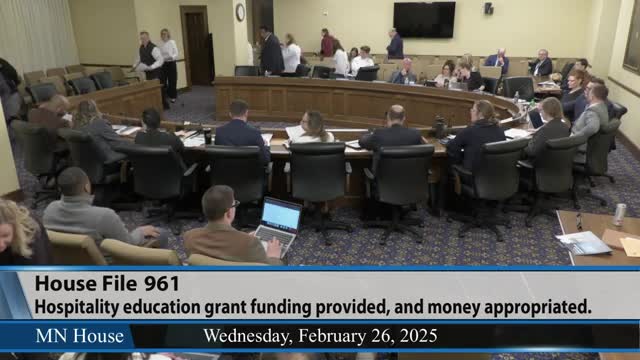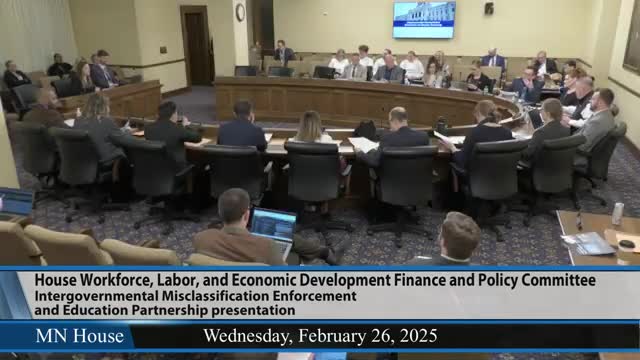Article not found
This article is no longer available. But don't worry—we've gathered other articles that discuss the same topic.

Bureau of Mediation Services outlines caseload, training and POGAR updates to committee

Explore Minnesota reports rising visitor numbers, new campaigns and film office launch

Committee hears testimony supporting ProStart funding; amendment shifts appropriation to DEED and bill is laid over

